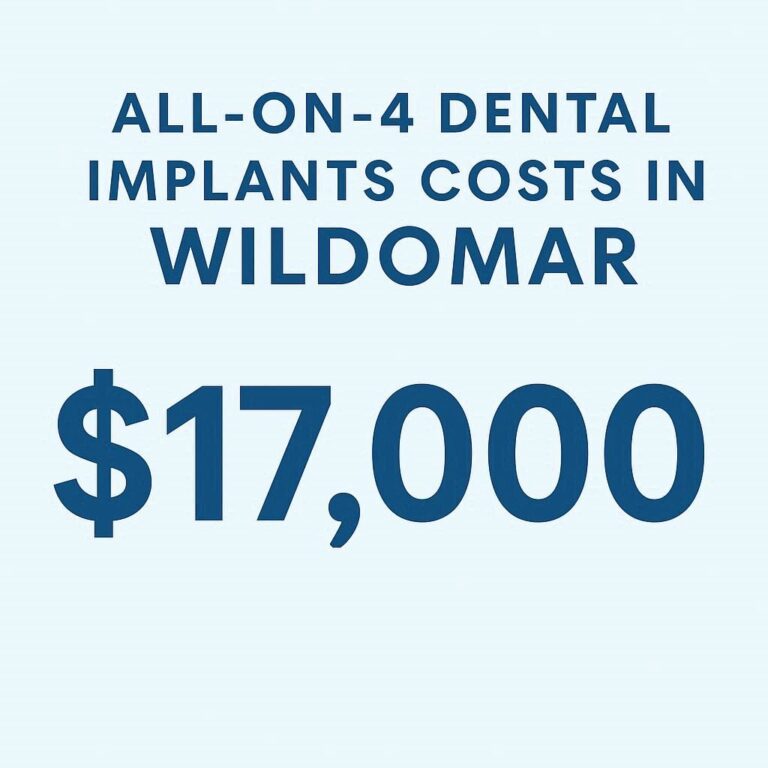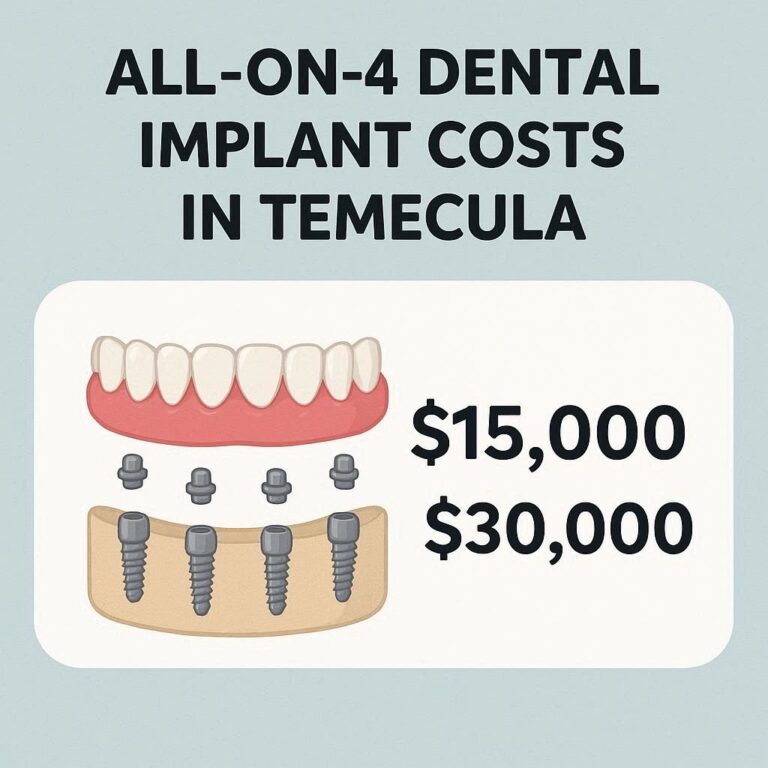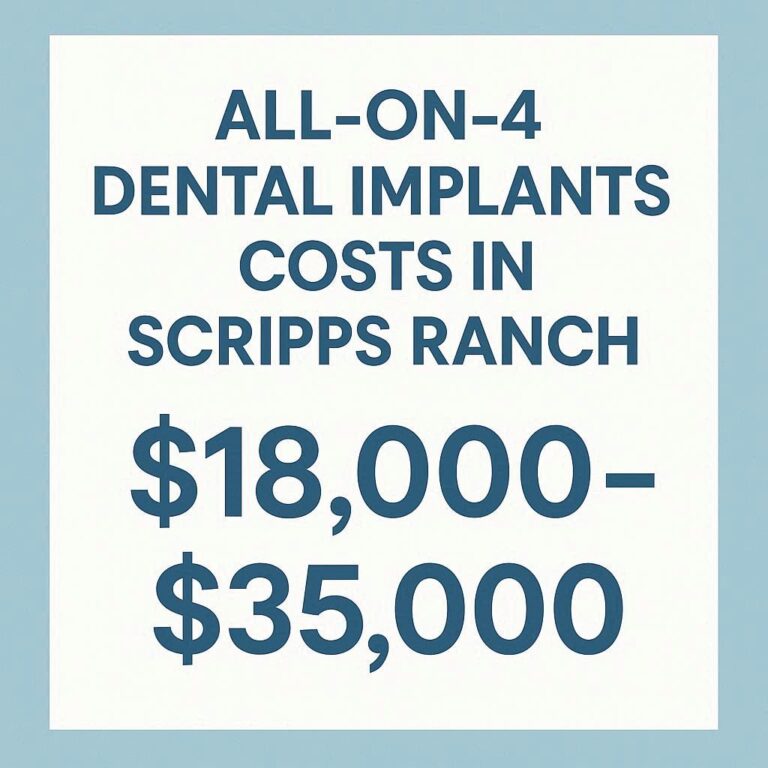The Complete Guide to the Cost and Procedure of Full Dental Implants
Losing multiple teeth—or even an entire arch—can significantly impact your quality of life, affecting everything from chewing and speaking to self-confidence. Fortunately, full dental implants offer a permanent, natural-looking solution that restores both function and aesthetics.
But how much do full dental implants cost? What does the procedure entail? And how do you know if you’re a good candidate? This comprehensive guide will answer all your questions, providing an in-depth look at the cost, procedure, benefits, and potential risks of full dental implants.
By the end of this article, you’ll have a clear understanding of what to expect, helping you make an informed decision about whether full dental implants are right for you.

2. What Are Full Dental Implants?
Full dental implants are a tooth replacement solution for patients missing all or most of their teeth in one or both arches. Unlike traditional dentures, which sit on the gums, implants are surgically placed into the jawbone, providing a stable foundation for fixed prosthetic teeth.
Key Components of Full Dental Implants:
- Titanium or Zirconia Implant Posts – Act as artificial tooth roots.
- Abutment – Connects the implant to the prosthetic teeth.
- Prosthetic Arch (Denture or Bridge) – Custom-made to match natural teeth.
This structure ensures durability, preventing bone loss and offering a natural bite force.
3. Types of Full Dental Implants
A. All-on-4 Dental Implants
- Uses four strategically placed implants per arch.
- Ideal for patients with moderate bone loss.
- Faster recovery and lower cost compared to traditional methods.
B. All-on-6 Dental Implants
- Six implants provide extra stability.
- Better for patients with stronger bone density.
- More expensive but longer-lasting.
C. Traditional Implant-Supported Dentures
- Requires 6-8 implants per arch.
- Most stable but highest cost.
D. Zygomatic Implants
- For severe bone loss in the upper jaw.
- Anchored in the cheekbone (zygoma) instead of the jaw.
- Avoids the need for bone grafting.
4. Who Is a Good Candidate for Full Dental Implants?
Ideal candidates:
✅ Have significant tooth loss in one or both arches.
✅ Have sufficient jawbone density (or are willing to undergo bone grafting).
✅ Are in good general health (no uncontrolled diabetes or immune disorders).
✅ Do not smoke heavily (smoking slows healing).
A thorough evaluation by a dental specialist is necessary to determine eligibility.
5. The Full Dental Implant Procedure: Step-by-Step
Step 1: Consultation & 3D Imaging
- Comprehensive exam, X-rays, and CT scans.
- Treatment plan customization.
Step 2: Bone Grafting (If Needed)
- Required if jawbone density is insufficient.
- Adds 3-6 months to the treatment timeline.
Step 3: Implant Placement Surgery
- Implants are inserted into the jawbone under local or general anesthesia.
Step 4: Osseointegration (3-6 Months)
- The bone fuses with the implants for stability.
Step 5: Abutment Placement
- Connectors are attached to the implants.
Step 6: Final Prosthesis Attachment
- Custom-made dentures or bridges are secured.
6. Factors Affecting the Cost of Full Dental Implants
| Factor | Impact on Cost |
|---|---|
| Number of Implants | More implants = higher cost |
| Material (Titanium vs. Zirconia) | Zirconia is more expensive |
| Geographic Location | US/Europe > Asia/Latin America |
| Additional Procedures (Bone Graft, Sinus Lift) | Adds $1,000-$3,000 per procedure |
7. Average Cost Breakdown Worldwide
| Country | Average Cost (Full Arch) |
|---|---|
| USA | $20,000 – $50,000 |
| UK | £15,000 – £30,000 |
| Germany | €12,000 – €25,000 |
| Mexico | $7,000 – $15,000 |
| Thailand | $8,000 – $18,000 |
8. Pros and Cons of Full Dental Implants
Pros:
✔ Permanent solution
✔ Prevents bone loss
✔ Natural look and feel
Cons:
✖ High upfront cost
✖ Surgical risks (infection, nerve damage)
✖ Long treatment timeline
9. How to Choose the Right Specialist
- Check credentials (board-certified prosthodontist/oral surgeon).
- Read patient reviews.
- Compare before-and-after cases.
10. Post-Operative Care & Maintenance
- Brush and floss daily.
- Avoid hard foods initially.
- Regular dental check-ups.
11. Common Risks & Complications
- Infection
- Implant failure (rare)
- Gum recession
12. FAQs
Q: How long do full dental implants last?
A: With proper care, they can last 20+ years.
Q: Does insurance cover full dental implants?
A: Usually not, but some plans offer partial coverage.
Q: Is the procedure painful?
A: Local anesthesia ensures minimal discomfort.
13. Conclusion
Full dental implants provide a life-changing solution for tooth loss, offering durability, functionality, and aesthetics. While the cost can be high, the long-term benefits make it a worthwhile investment. By choosing an experienced specialist and following post-op care, you can enjoy a confident smile for decades.
14. Additional Resources
- American Academy of Implant Dentistry
- Journal of Oral Implantology
- FDA Guidelines on Dental Implants


